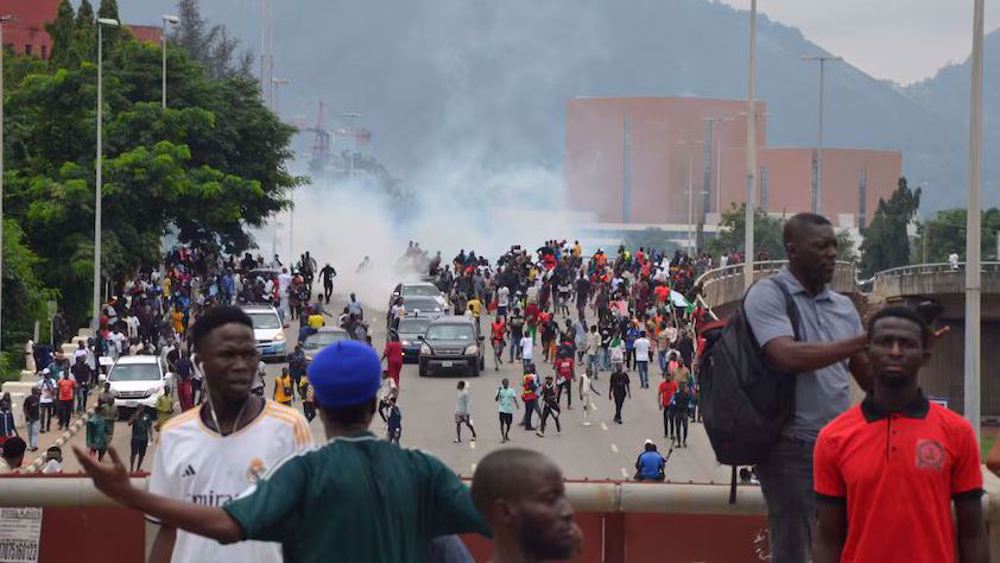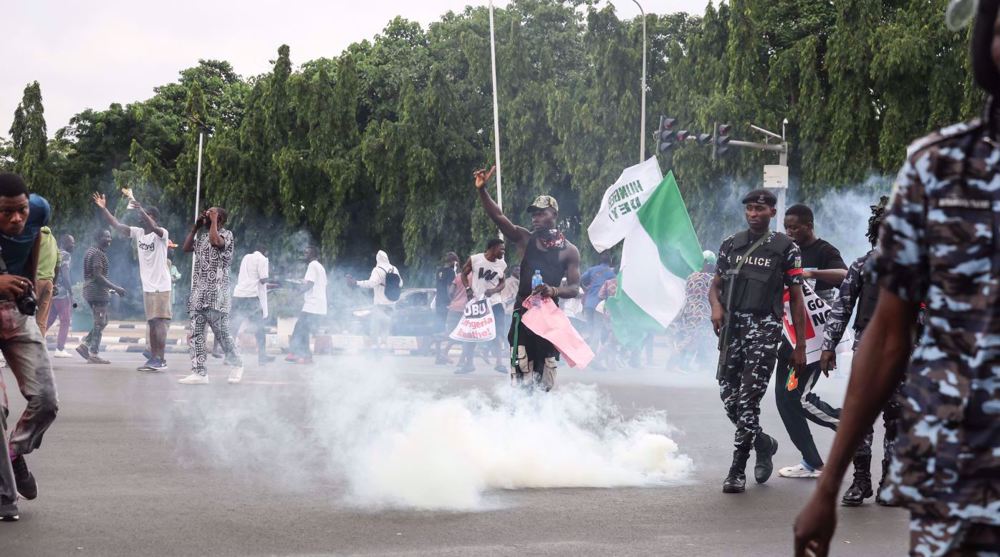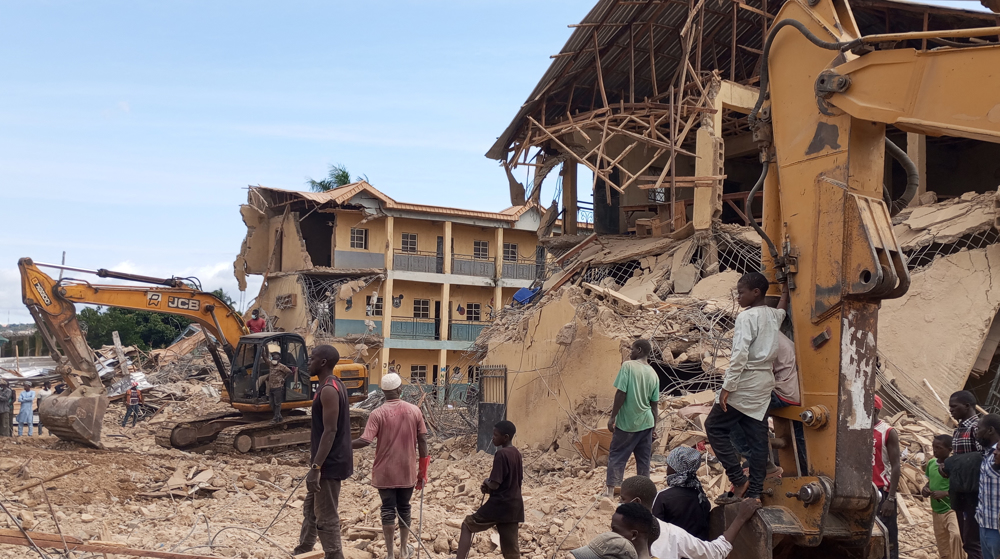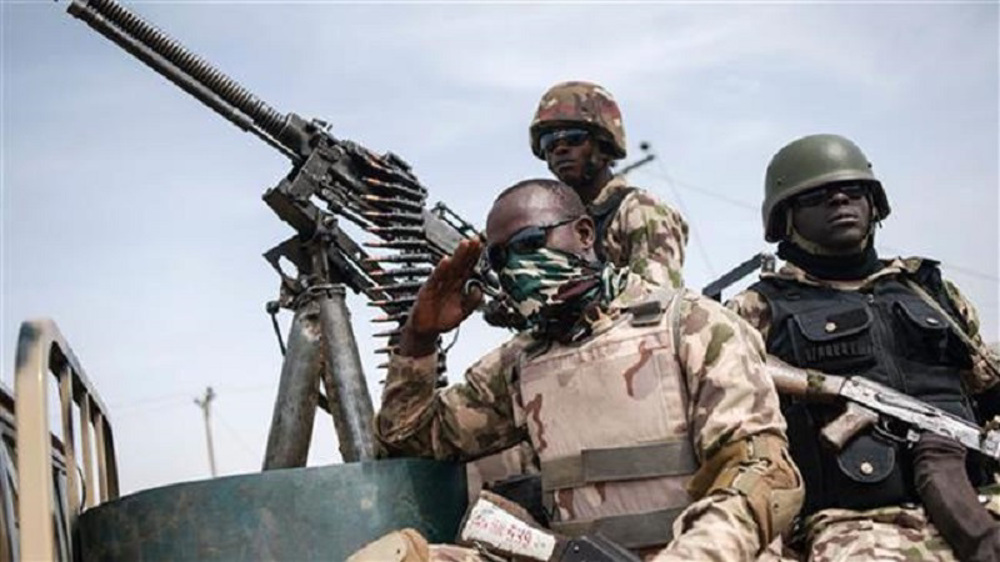Nigeria loses 9 soldiers in landmine explosion
At least nine Nigerian troops were killed when a military truck hit a landmine in northeast Nigeria, two security sources said on Wednesday.
The incident happened on Monday near the town of Malam Fatori on the border with Niger which houses a garrison of soldiers fighting militant groups, the sources, who asked not to be identified, told AFP.
"We lost nine soldiers in the incident," said the first security source.
The military convoy was transporting food from regional capital Maiduguri, 200 kilometers (130 miles) away, when the lead vehicle hit the explosive device, the second source said.
The faction, which calls itself the West Africa Province (ISWAP) branch of the Daesh Takfiri terrorist group, is dominant in the Lake Chad region including Malam Fatori where they have been locked in a war with troops from Nigeria and Niger.
"The mine was definitely planted by ISWAP terrorists who operate in the area and against whom soldiers are fighting," said the second source who gave the same toll.
News of the incident was slow to emerge due to lack of communication network as the militants have destroyed telecom infrastructure in the region.
ISWAP split from mainstream Boko Haram militant group six years ago and rose to become a dominant group.
The militants have made repeated deadly attempts to overrun the Malam Fatori base.
The group focuses on military targets, raiding bases, laying ambush to troops and planting mines on the roads, although they have in recent times been attacking and abducting civilians.
At least 36,000 people have been killed in the conflict which displaced around two million from their homes since 2009.
The violence spread into neighboring Niger, Chad and Cameroon, prompting a regional military coalition to fight the militants.
Police and army brutality in Nigeria
Survivors of Lagos shooting recount their stories
Solomon, Patrick and Samuel were wounded on October 20 during a crackdown by Nigerian security forces on protesters in Lagos who had gathered despite a curfew order.
The three say they spent several days at the Lekki toll gate, the epicenter of demonstrations that erupted on October 8 over police violence and bad governance, as they themselves had been victims of police abuse in the past.
Now discharged from hospital, the three men – whose full names are being left anonymous for safety reasons – are desperate for their stories to be heard.
It was the Nigerian army who fired, all three said.
The government denies any responsibility and labeled reports that soldiers killed 12 people as "fake news". The police on Friday said 22 officers had been killed in protest-linked unrest last month.
"How can they say it's not true?," asked Patrick.
"We saw them. Two guys died instantly in my presence, and one is still in the coma – my friend Nicholas," said the 25-year-old demonstrator, unemployed since a lockdown in March imposed to contain the coronavirus.
Shot in the arm – he was brandishing a flag when he came under fire – Patrick was evacuated, put on a canoe that crisscrossed the Lagos lagoon and took him to a hospital.
"The soldiers were blocking the roads, the ambulances could not access the scene. Some were using bikes, others wheelbarrows to take the injured," he said.
Samuel, 30, was helping to ensure safety at the protest ground with a group of volunteers when he heard the first gunshots.
"We saw armed, military men, so we came back to the stage and started waving our flags and singing the national anthem."
"I was not expecting them to shoot at us," said the young man, who works in agriculture in the outskirts of the sprawling city.
"I was expecting them to address us in a normal manner. But they didn't talk to anybody, they just started shooting."
"All of a sudden I started feeling something hit my left thigh," he remembered. The screen of his phone might have saved him – the bullet would have otherwise penetrated even deeper.
In pain, he managed to walk 500 meters (yards) to find someone who could take him to hospital.
"I saw like three people dying, but I was also injured, so I couldn't help them. I had to help myself first."
It was a close call for Solomon as well. A bullet pierced his shoulder, and another grazed his neck, leaving a burn scar.
The 38-year-old construction worker is still in shock.
"The country doesn't realize what happened, but for me this is not the end, this is just the beginning of the protests," he told AFP.
"I need a better Nigeria. This wound made me even more ready to fight, I have nothing to lose anymore."
(Source: Agencies)
VIDEO | 85% of Yemeni displaced people face daily hunger crisis
US House passes bill targeting charities and pro-Palestine groups
VIDEO | Supporting Gaza genocide
Hezbollah attacks Israeli forces after Lebanese homes blown up
World leaders, states hail ICC arrest warrants for Netanyahu, Gallant
MP: US accountable for possible Israeli 'foolishness' to attack Iraq
VIDEO | Israeli policies strangle Palestinian agriculture, economy
Iran's president offers condolences to Pakistan over terrorist attack
















 This makes it easy to access the Press TV website
This makes it easy to access the Press TV website